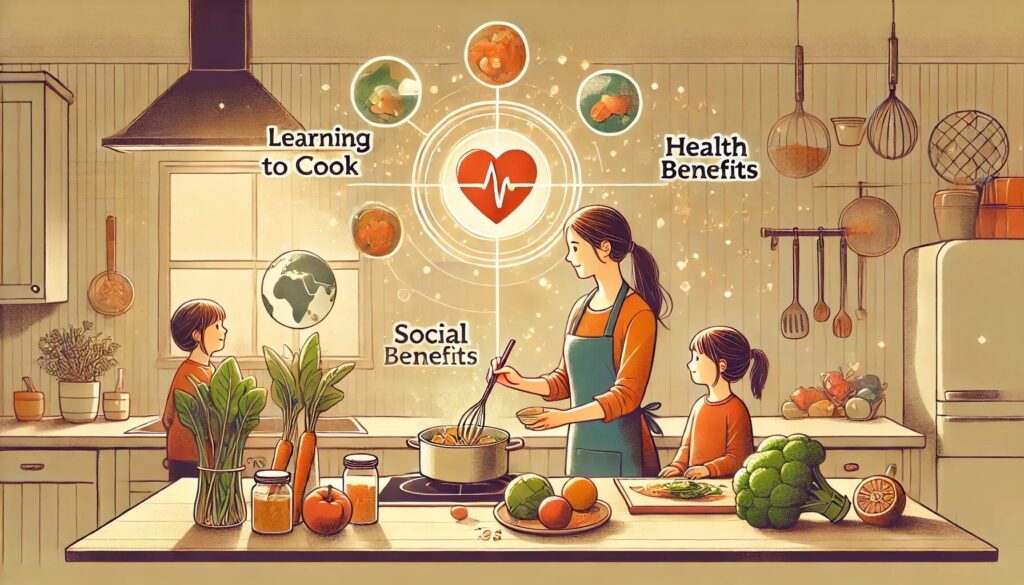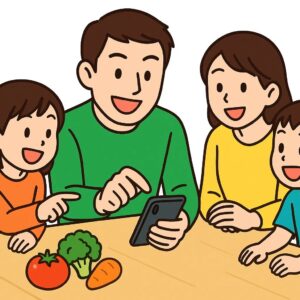1. Introduction
Learning to cook has value beyond mere skill acquisition. It brings health improvements and enhances quality of life, while also having a positive impact on society as a whole. While developing the ability to maintain a healthy diet, we can contribute to revitalizing the local economy and creating a sustainable society. This article explains the health benefits of learning to cook and its social impact.

2. Practical Points and Specific Examples
- **”Health Benefits of Learning to Cook”**Cooking for yourself enables you to achieve nutritionally balanced meals. You can reduce dependence on eating out and processed foods, making it possible to prepare vegetable-focused meals with controlled salt content. Home cooking makes calorie control easier and helps prevent obesity and lifestyle-related diseases. Additionally, using fresh ingredients helps build a foundation for healthy living.
- **”Impact on Family and Community Health”**Acquiring cooking skills allows you to support the health of the entire family. When parents prepare nutritionally balanced meals, they can ensure their children receive the nutrition necessary for healthy growth. Furthermore, through participation in local cooking classes and events, you can spread healthy food culture that makes use of local ingredients.
- **”Cooking and Contributing to a Sustainable Society”**By honing cooking skills, you can reduce food waste and achieve an environmentally conscious lifestyle. By devising recipes that utilize leftovers in the refrigerator, you can prevent food waste. Additionally, using local seasonal ingredients reduces food miles and contributes to revitalizing the local economy.
- **”Social Impact: Reducing Medical Costs and Improving Productivity”**As more people practice healthy eating habits, the risk of lifestyle-related diseases decreases, leading to reduced medical costs. Corporate initiatives in cooking skill education as part of health management lead to reduced medical expenses and improved productivity. Moreover, healthy eating habits enhance concentration and energy, contributing to improved productivity across society.
- **”Digitalizing and Spreading Cooking Education”**Through the use of digital technology, cooking education can be provided to more people. Through online cooking classes and recipe apps, even busy people can easily learn healthy cooking. Sharing healthy recipes on social media enables effective information dissemination to a broad audience.
3. Points to Note and Tips for Success
When starting to cook, it’s important to begin with simple, nutritionally balanced menus rather than attempting complex dishes. Learning together with family and friends helps build sustainable habits while having fun. Additionally, incorporating local seasonal ingredients can help achieve a more sustainable diet.
4. Summary and Next Steps
Learning to cook not only improves individual health but also has a positive impact on society as a whole. Let’s start with simple, nutritionally balanced cooking and share that joy with family and community. Through cooking skills, we can transform ourselves, our families, and society as a whole into something healthier and more sustainable.




